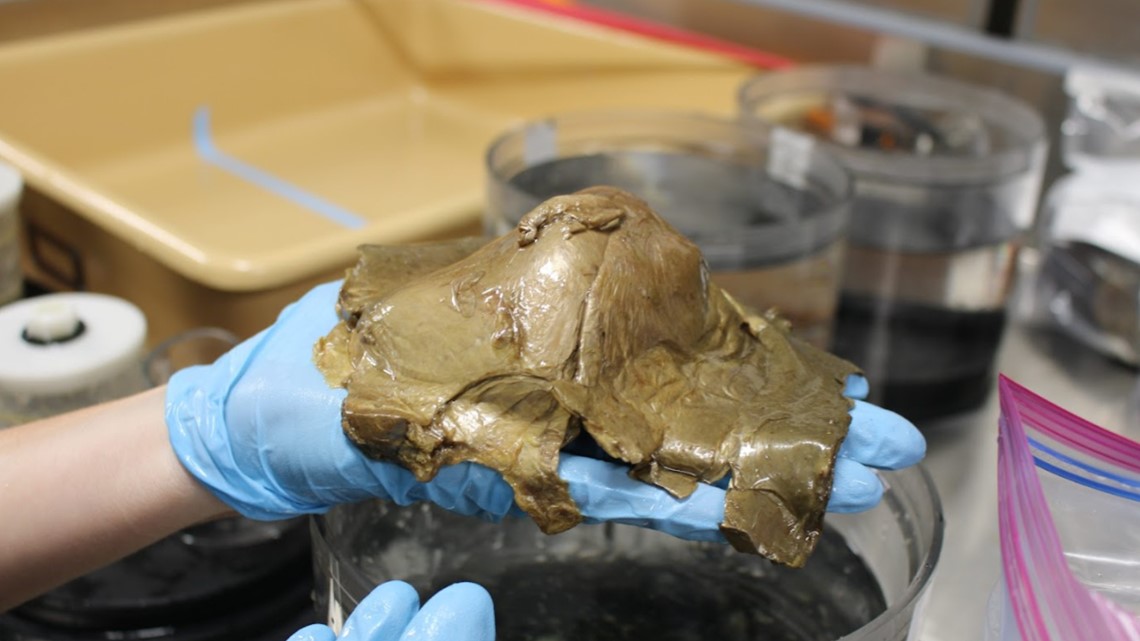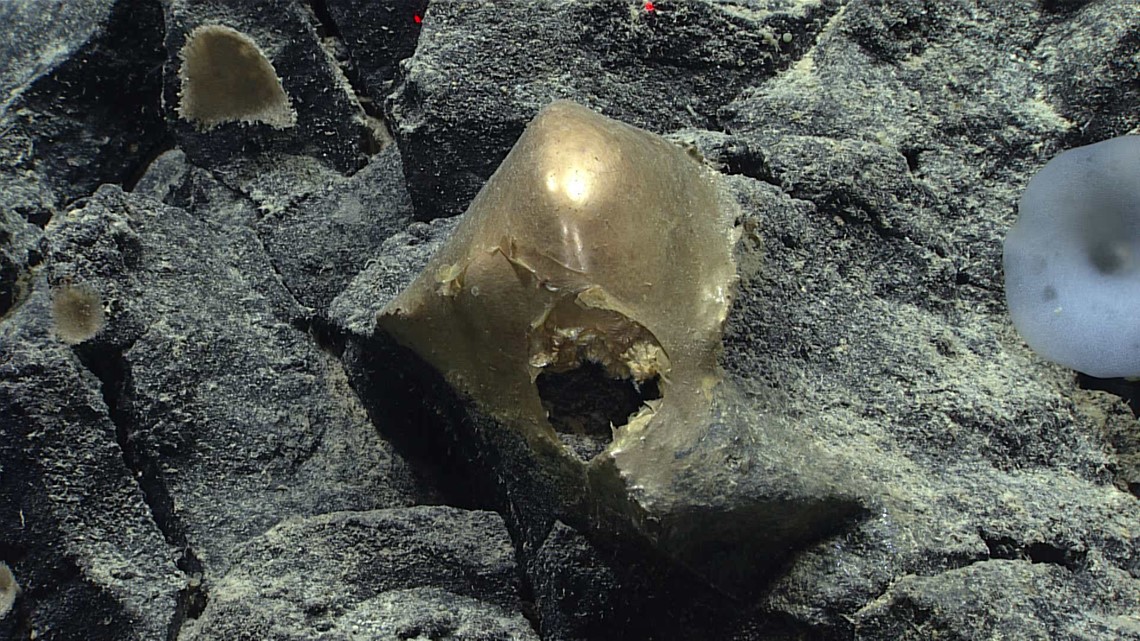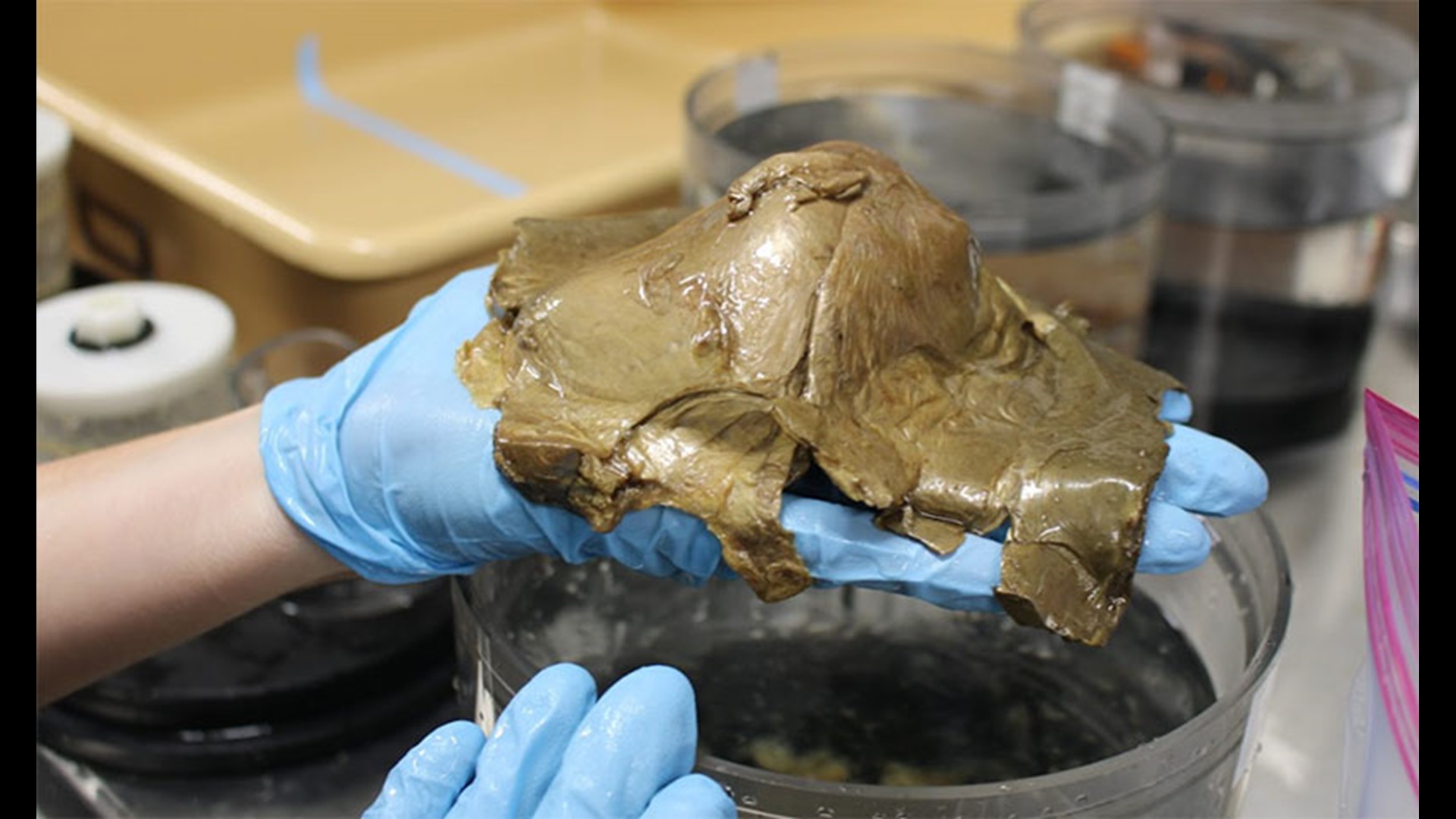SEATTLE — A "golden orb" referred to as a "yellow hat" found off the coast of Alaska during a National Oceanic and Atmospheric Administration (NOAA) expedition has scientists puzzled.
The NOAA ship Okeanos Explorer came across the "confounding sight" on Aug. 30 while exploring a small seamount in the Gulf of Alaska. NOAA said expedition personnel were using a remotely operated vehicle and were gliding over a rocky outcrop at a depth of about two miles at the time.
NOAA described the object as a "smooth, gold, dome-shaped specimen, a little over four inches in diameter" and was tightly adhered to a rock. A small hole or tear near its base revealed a similarly colored interior.


Scientists were stumped trying to identify it. Initial thoughts ranged from a dead sponge attachment to coral, to an egg casing.
Since its discovery it has been dubbed a “golden orb” and even a “golden egg,” by media outlets.
"Isn’t the deep sea so delightfully strange,” said Sam Candio, NOAA Ocean Exploration. “While we were able to collect the 'golden orb' and bring it onto the ship, we still are not able to identify it beyond the fact that it is biological in origin. We likely won't learn more until we are able to get it into a laboratory setting."
It's still unclear if the golden dome is associated with a known species, a new species, or even an unknown life stage of a known species.
Candio elaborated on the importance of ocean exploration and said the object is a reminder of how little we know about our own planet and how much is left to learn and appreciate about our ocean.
“New species have the potential to reveal new sources for medical therapies and vaccines, food, energy, and other societal benefits and knowledge," Candio said. "Collectively, the data and information gathered during this expedition will help us close gaps in our understanding of this part of the planet, so we can better manage and protect it."



